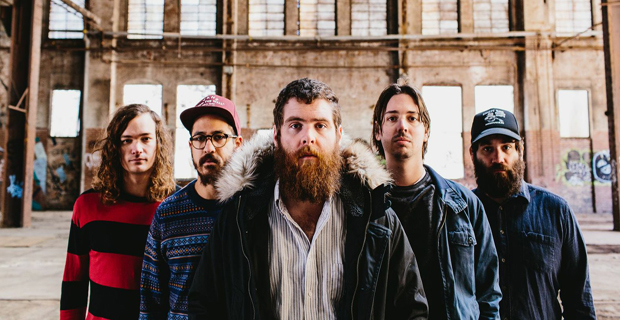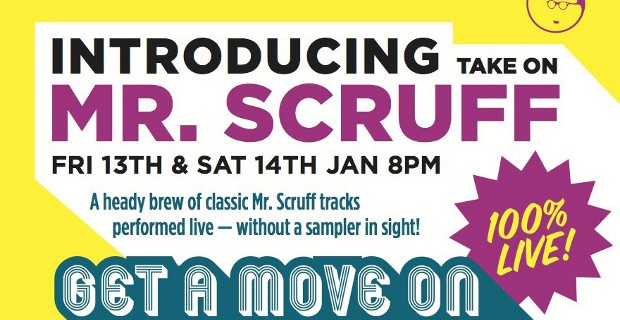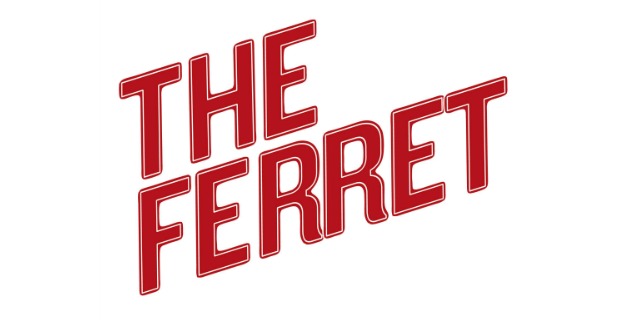Atlanta prog-rockers Manchester Orchestra arrive in their namesake city tonight for a teeny show at one of Manchester Academy’s smallest rooms. The trip comes hot off the release of their powerhouse fourth record Cope, a relentless wall-of-sound effort that still manages to evoke emotions and catch you off guard with some hard-hitting sentimentality and raw emotion. We caught up with front man Andy Hull shortly before he unleashed his band’s new stuff on the world to discuss a decade of being in a band, recording an album at home, laying your cards on the table for all to dissect. See what you think, below.
Hi Andy, so you’ve been in Manchester Orchestra for almost 11 years now, how has it changed your life?
Quite a bit! I think it’s coming up on about 10 years probably this year. I started at about 16-17, so near 11 years or something. It’s just been there. I’m 27 now so a couple more years, I’ll have known this band equal to the amount I’ve been alive. It’s been an incredible life leading adventure.
You’ve described Mean Everything To Nothing as a tantrum, Simple Math as a thought, how would you categorise Cope?
I don’t know. We tried to make something that doesn’t sound like anything else. Lifty, Loud, fast, tetchy…
Would you say it’s the most personal thing you’ve written?
Well yeah in a sense. There’s a lot about me on it, but Simple Math is certainly the most personal kind of ‘cut your chest open examine the inside’ thing for the listener, this is far more prescriptive. It’s trying to get through and get on with life regardless of what happens and the difficulties that can lead to.
Your lyrics have always been quite raw and laid bare. When writing, how much thought do you give to how transparent or revealing you’re being?
I think the transparency part is a more natural sort of therapy. It feels good to say something that you want to say but you can’t just say it and for some reason you’re allowed to sing it and it’s fine. So I can just sing it, which is awesome but I think, as far as the lyrics here, they’re certainly based on thoughts and conversations and the next chapter in a lot of things.
httpv://www.youtube.com/watch?v=PaMiVDZu_T4
Does it bother you thinking listeners might be psychoanalysing your lyrics and really reading into your words?
No, that’s awesome. I’m like that with bands, I’ve always been that way. I love creating my own story around the lyrics, that’s like my contribution to the song. It’s interpreting it and allowing it to help you and there’s a lot of that on this record. I want people to wonder and I want Cope to mean what it means to you, it doesn’t really matter what it means to me. I think with some of these lyrics, they’re not planned, they’re like grand in size, they’re grand statements that are less specific in detail but definitely more specific in however you can interpret them.
Your lyrics probably help a lot of people in different circumstances. Do you ever get people coming up to you saying how your music and MO music has helped them through different parts in their lives?
Yeah, not people coming up to me but met up at one of the shows maybe, when I get to talk and hang out with fans, which is the most incredible and a massive reason why I get to do it and why we do it. It’s cool to be in a band and super cool to play shows, it’s a really fun thing to do to be artistic for a living but then you have to think about what it’s doing outside your needs and your wants and realize that it’s actually way bigger than you and it doesn’t matter how you feel about a certain record at a certain point because for the fans, it’s for them to interpret, to have and love and I think that’s cool.
It must be a crazy feeling, working on a record for so long, and then sending it out into the world and it stays with people and has a really long afterlife.
Yeah it is, it’s really, really crazy. It’s a cool relationship between the two, of a listener and a band and the fact that something we’re doing is actually helping someone, that’s nuts! Way beyond the intention and it’s not the intention isn’t to help people but that’s my therapy. It’s pretty cool.
I read that you wrote about 28 songs that didn’t make it onto Cope. Did some just not feel right?
Yeah some of them were and others just weren’t…I’d give them a C+ with work and effort but there were a couple of A’s for sure. Cope is pretty relentless and there aren’t really any quiet parts. It’s pretty aggressive through and through so we just felt like throwing a slower track in there just didn’t really make sense. I feel confident as a band that we’ll continue to make different records as we go on and the next record will be completely different as well. This one we really wanted to dedicate ourselves to creating something different and old.
Did you feel ready to write Cope when it came along, was it pent up inside you?
Yeah. It was super organic, it definitely started to take shape, the first four songs we demoed, they were good tunes – one of them ended up being on a split that we did with this band Group Love but it didn’t get used. They were okay but you can feel that when you start to get 6, 7, 8 songs that you’re really are into, you can start to see the outline and understand what it’s becoming.
When you pick up and guitar and start playing how do you know what’s a Manchester Orchestra song, a Bad Books song, what might be a solo track?
It just depends on the time. The songs can really be turned into anything with the right manoeuvring and surgery so if it’s Bad Books album time, generally – or at least it was for the last two albums – we used what we had laying around at the time. I heard J Mascis from Dinosaur Jr say songwriting is like fishing, it’s like you sit there all day long and you pull one in and go ‘No that’s not good’ and you throw it back. Hopefully you get it and it’s cool, you kinda go from there.
That theory must have been handy writing Cope at home. Was the recording process pretty relaxed?
No, I’m pretty focused and intense when it comes to working on a Manchester Orchestra record but for just overall tunes, yeah. The iPhone’s really full of demos. It always used to be cool when a band would have a demo and it was somewhat recorded well and I used to do that all the time and now it’s just a whole lot of voice memos, you throw something down, it sounds good and do something to it later.
So your iPhone is like a treasure trove of half finished tracks?
It’s a mixed bag, let’s call it that. You never know what you’re gonna get!
httpv://www.youtube.com/watch?v=w7o6ZJ2GJzo
The video for Top Notch is suitably creepy. How happy are you with it?
I think it’s really, really weird and awesome. It’s totally outside the box, the subject matter of that song being about two twin deaf brothers and a house that’s burning down and then realising that one of them is gonna make it and the others not. This video is like one weird Requiem Of A Dream close shot of their lives.
It has real German expressionist, eerie feel to it. You can’t seem to look away from it…
Yeah that’s cool, I thought how uncomfortable all the sign language looked and the fact that that’s the way the kid’s communicating and I thought it was pretty rad and it’s never been done before and we always like doing things we haven’t done.
There’s been talk of you returning to Right Away, Great Captain! but it’s still early days. What themes attract you when starting these side projects?
The themes always stay somewhat the same. Hopefully some sort of redemption, struggle, the dark parts, the light parts but for me, I love stories and there’s a couple of story songs on Cope and it’s kinda cool. I love going into other characters’ brains and developing things and that all comes from a real love of movies and characters.
Any more plans to do more Bad Books records?
Oh yeah, hell yeah. That’s not going anywhere, it’s fun!
Words and interview by Simon Bland (@SiTweetsToo).
Be sure to ‘Like’ us on Facebook and follow us on Twitter to keep up to date on all the latest Northern entertainment news!




